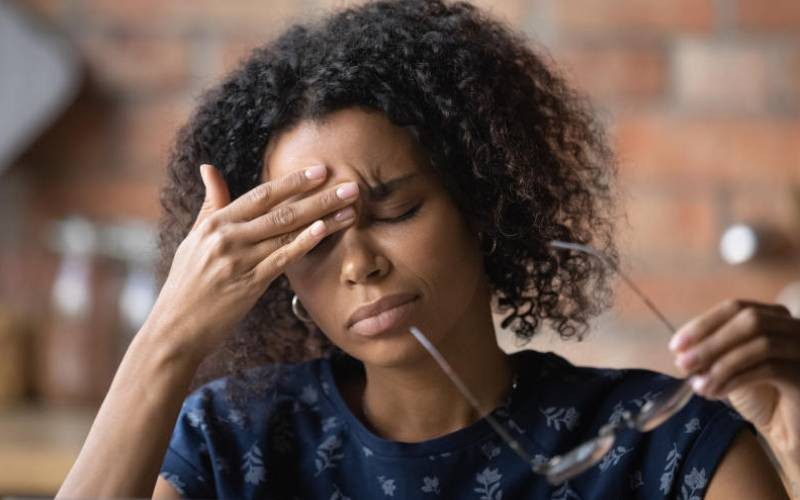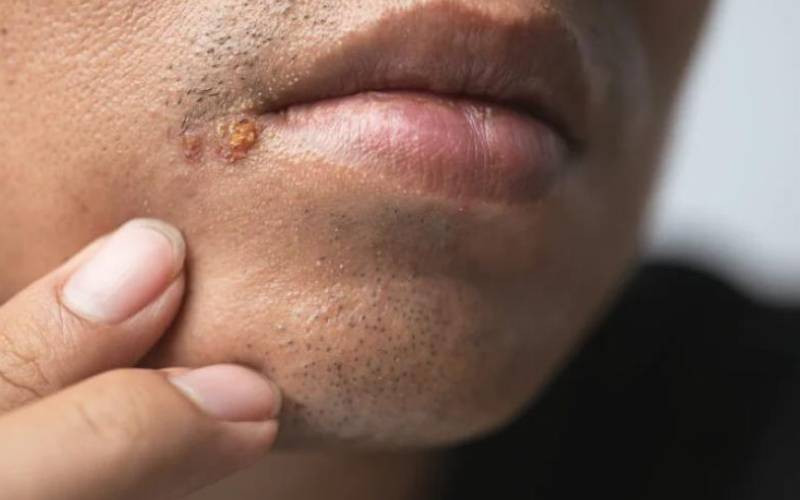
To pre-empt problems when you’re older, it’s wise to get checked out for certain things sooner rather than later…
Feeling healthy right now? Don’t be too complacent; recent research* found that almost half of people in their late 30s are at increased risk of illness and poor health later in life, as we put off making positive changes to our lifestyle.
"Your 40s are the perfect opportunity to press the “reset” button on health habits to make a lasting difference to your overall wellbeing," says Dr Chris Tomkins, head of proactive health at AXA PPP Healthcare.
Prevention really is better than cure: "Most test results can give you peace of mind and if a problem is picked up, treatment is more effective the earlier an issue is identified," says women’s health expert, Dr Marilyn Glenville
It’s time to get checked out…
1. Cervical smear
Why? Although cervical cancer is most common in women between the ages of 30-35, it’s still vital to have regular smear tests. You should have one every three years between 25-49, and every five years between 50-64.
"Recent research has shown that a fifth of cervical cancer cases occurred in women over the age of 65," comments Dr Pixie McKenna, health ambassador for Superdrug.
What is it? A smear involves taking a small sample from the cervix (the neck of the womb) to check for any abnormal cells that might lead to cervical cancer. Almost all cervical cancer is caused by the HPV virus, which is initially contracted by sexual activity.
"However, it may lay dormant for years before it starts to cause cancerous cells on your cervix," warns Dr Pixie. "If you have bleeding between periods or after sex your should see your GP," she adds.
2. Midlife MOT
Why? Want a full body health check to put your mind at rest? Then look out for the NHS Health Check Programme, aimed at the over 40s.
What is it? It’s a free screening open to anyone in England aged 40 to 74, and targets the top seven causes of preventable death: high blood pressure, smoking, obesity, cholesterol, poor diet, physical inactivity and alcohol consumption – the things that are more likely to cause us to die prematurely, or affect our day-to-day lives in old age.
You’ll be asked about your lifestyle and family medical history, and have some blood tests.
"The earlier we flag up problems in these areas, the earlier we can intervene and advise you on how to have a longer, happier, healthier life," adds Dr Pixie. Go to Nhs.uk/nhshealthcheck to find out more.
3. Mammogram
Why? Breast awareness is very important at any age, because breast cancer, the most common cancer , affects one in eight women.
"Attending mammograms every three years is vital," advises Lloyds Pharmacy pharmacist Alison Freemantle.
What is it? This is an x-ray of both breasts to look for any changes that might suggest cancer.
"Women will be invited to have a test between the age of 47 and 53, depending on where you live," says Alison.
Regular breast checking is incredibly important, too; see your GP immediately if you notice any changes to your breast tissue, such as irregular lumps or bumps, or skin dimpling.
4. Regular eye tests
Why? Having an eye check once a year with a qualified ophthalmologist is important, no matter what your age, but if you’re 70 or over you should attend more regularly because sight deterioration can be more rapid.
"These tests can also pick up early signs of eye disease," explains Alison Freemantle.
What is it? A simple test, where the ophthalmologist looks into the back of your eye with a special torch, can highlight health conditions such as diabetes and glaucoma and also check for eye conditions that result in a gradual loss of vision, which can’t be treated with glasses – such as cataracts and macular degeneration, the most common form of vision loss in the over 50s.
5. Bowel checks
Why? Bowel cancer is the fourth most common cancer in the UK but accounts for the second highest number of deaths, so it’s essential to have regular tests.
What is it? This involves submitting a specimen of your stool for analysis through a postal self test kit. Everyone aged 60 to 74 is sent a free home test kit every two years from the NHS, but you can take the test if you are younger than this.
"It’s important to catch bowel cancer early, so get checked out at 40," says Dr Helen Webberley, medical director of online tests site, Medichecks.com. "The test can detect tiny amounts of blood in the stool which can indicate cancer or precancerous polyps. These polyps can be removed before they go on to cause any harm."
6. Bone health
Why? The health of your bones becomes even more important once you hit the menopause.
"Past 50, one of our greatest risks is osteoporosis," comments Dr Marilyn Glenville. This is because a drop in oestrogen for a prolonged period can cause a loss in bone mass.
"Have a bone density scan, especially if you have a family history of osteoporosis, or any other risk factors for the condition such as being a heavy drinker and smoker, or suffering from rheumatoid arthritis or Crohn’s disease," says Dr Glenville.
What is it? An x-ray that uses very low doses of radiation to take pictures of your spine and hips while you are lying down.
Dr Glenville also recommends having a ‘bone turnover’ test – a urine test which detects whether you’re losing bone mass on a daily basis.
"This shows if you need extra nutrients such as calcium and vitamin D." Consider having a vitamin D test too, because it’s essential in helping our bodies absorb calcium.
7. Hearing
Why? Hearing loss is a common problem as we age, "but most people suffer from it for up to 10 years before seeking help," says Alison Freemantle.
Hearing loss can be gradual and often begins with having difficulty hearing people speak when there’s a lot of background noise. This can affect quality of life and make a person feel isolated.
If you have problems hearing, it could also signify an infection or ear disease, so visit your GP. If you haven’t had a hearing test since childhood it’s worth having one to check everything is as it should be, especially if you are over 60.
 The Standard Group Plc is a multi-media organization with investments in media platforms spanning newspaper print
operations, television, radio broadcasting, digital and online services. The Standard Group is recognized as a
leading multi-media house in Kenya with a key influence in matters of national and international interest.
The Standard Group Plc is a multi-media organization with investments in media platforms spanning newspaper print
operations, television, radio broadcasting, digital and online services. The Standard Group is recognized as a
leading multi-media house in Kenya with a key influence in matters of national and international interest.










